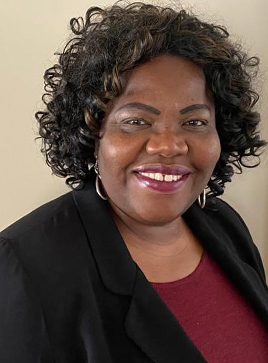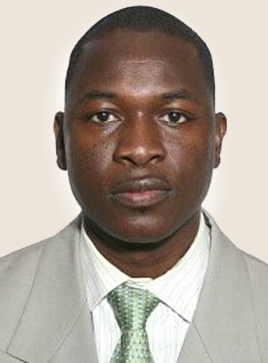COVID-19

Time for a transformation: Strengthening health care and capacity for African, Caribbean, and Black communities in Ontario


The COVID-19 pandemic has been called a "great equalizer" because, when it comes to contracting the novel coronavirus, it "doesn't care who you are." This idea has been used to create a shared sense of responsibility: if every one of us is potentially at risk, then every one of us must do what we can to stop the spread of COVID-19.
The newness of the illness may lend itself to this sense of shared risk and responsibility, but the pandemic is not affecting all groups equally. Instead, like other health crises before it, COVID-19 is now highlighting disparities that already existed in Canada.
"There has been a disproportionate number of cases and impact on racialized communities," explains Dr. Josephine Etowa, a Professor at the University of Ottawa.Footnote 1 "African, Caribbean, and Black communities are particularly vulnerable in terms of their susceptibility to COVID-19 and whether they have access to appropriate care."
This vulnerability—and the resulting risk of illness—is linked to a number of social and economic factors that are commonly referred to as the social determinants of health. These factors can positively or negatively influence health, but for those who experience forms of inequality or disadvantage, the cumulative impact on health tends to be negative—and these negative effects are being exacerbated by the pandemic. This is ultimately making it harder for disadvantaged communities to deal with COVID-19.Footnote 2
The cascading effects of disadvantage warrant attention at any time, but the pandemic has added another layer of urgency. To address some of the current needs related to COVID-19, Dr. Etowa is leading a new project that involves working directly with African, Caribbean and Black (ACB) communities and health care providers in Ontario through community-based participatory action research. This collaborative approach "creates the environment to co-lead and co-create solutions" by bringing academics, community partners, decision-makers, public health officials and health care providers together to work toward the same goals.
Specifically, the project aims to improve the health system's response to the pandemic by minimizing the spread and impact of COVID-19 on ACB communities—and it all begins with communities themselves. "It's important to start with their reality and build from there," explains Dr. Etowa, adding that the team is reaching out to people in person and through an online survey. "And it is not all negative. Despite the many challenges people face, a lot of strength exists in the communities, and we can recognize and learn from that."
Engaging with people in this way requires strong partnerships with community leaders and organizations, which is where the Canadians of African Descent Health Organization (CADHO) comes in. CADHO, a not-for-profit created to improve the health and health care of Canadians of African Descent through transformative community engagement in the Ottawa area and beyond, is one of the committed and enthusiastic community partners for the project.
"This project aligns very well with our vision," says Dr. Bagnini Kohoun, President of CADHO, noting that the organization is keen to contribute to research and health education. "Each step of the project gets input from the community—and at CADHO, we know the community well—so part of our role is to mobilize people to actively participate in everything, from the initial interviews and discussions to sharing and using the research results."
Part of this research component involves gathering information from ACB communities about their experiences with the health system. Lack of trust in the system can further worsen the communities' ability to deal with COVID-19, particularly if they have previously experienced harm from it or if they avoid certain services because of the way they will—or fear they will—be treated.
Addressing the state of current health care practices and the communities' perception of them requires the input and collaboration of health care providers, as well. Dr. Etowa's team will conduct surveys and interviews to learn more about their experiences in providing care to ACB people. "This is not about judging individuals," she emphasizes. "Our goal is more to understand the provider's needs. It's about building cultural competencies, including things they were likely never taught or are not aware of. We can help them avoid creating harm, and they can be confident in providing appropriate care."
What are the social determinants of health?
The social determinants of health (SDH) are widely recognized as having a tremendous impact on the health of individuals and communities. The World Health Organization (WHO) describes these determinants as "the conditions in which people are born, grow, live, work and age."
SDHs are the daily conditions of life (such as your access to adequate and nutritious food, or safe and stable housing) and elements that have had an influence on your life (such as early childhood development, social inclusion, education and literacy levels, and access to employment opportunities).
All of these factors shape the health of Canadians—for better or for worse—and studies have shown that they are largely responsible for differences in health status between and across communities.
For additional information and resources visit:
- Social determinants of health and health inequalities (Government of Canada)
- Fact sheets about racialized poverty (Colour of Poverty–Colour of Change)
- Social determinants of health e-learning course (Canadian Nurses Association)
- Social determinants of health (World Health Organization)
The individual pieces of the project—such as engaging individual community members, learning about lived experiences and gaps, addressing provider needs, and ensuring knowledge transfer between stakeholder groups—are all building blocks to enhance individual, community, organizational, and system-level capacity to deal with the pandemic. Dr. Etowa's team plans to bring these pieces together by creating online resources and other supporting materials to help ensure the research leads to inclusive policies and health care practice models for ACB communities, and they will also help promote health literacy in the communities by training peer educators and hosting information sessions focused on COVID-19. Overall, the project serves as an excellent example of how the community-based participatory action research process can rally people to find better ways forward, together.
"We're excited about this project. It will touch a lot of people," says Dr. Kohoun. "Because they feel involved and respected, our community members feel a sense of ownership with this project—and when people feel part of something, they feel motivated to work for positive change."
Related reading
- Date modified: